
Lot 34
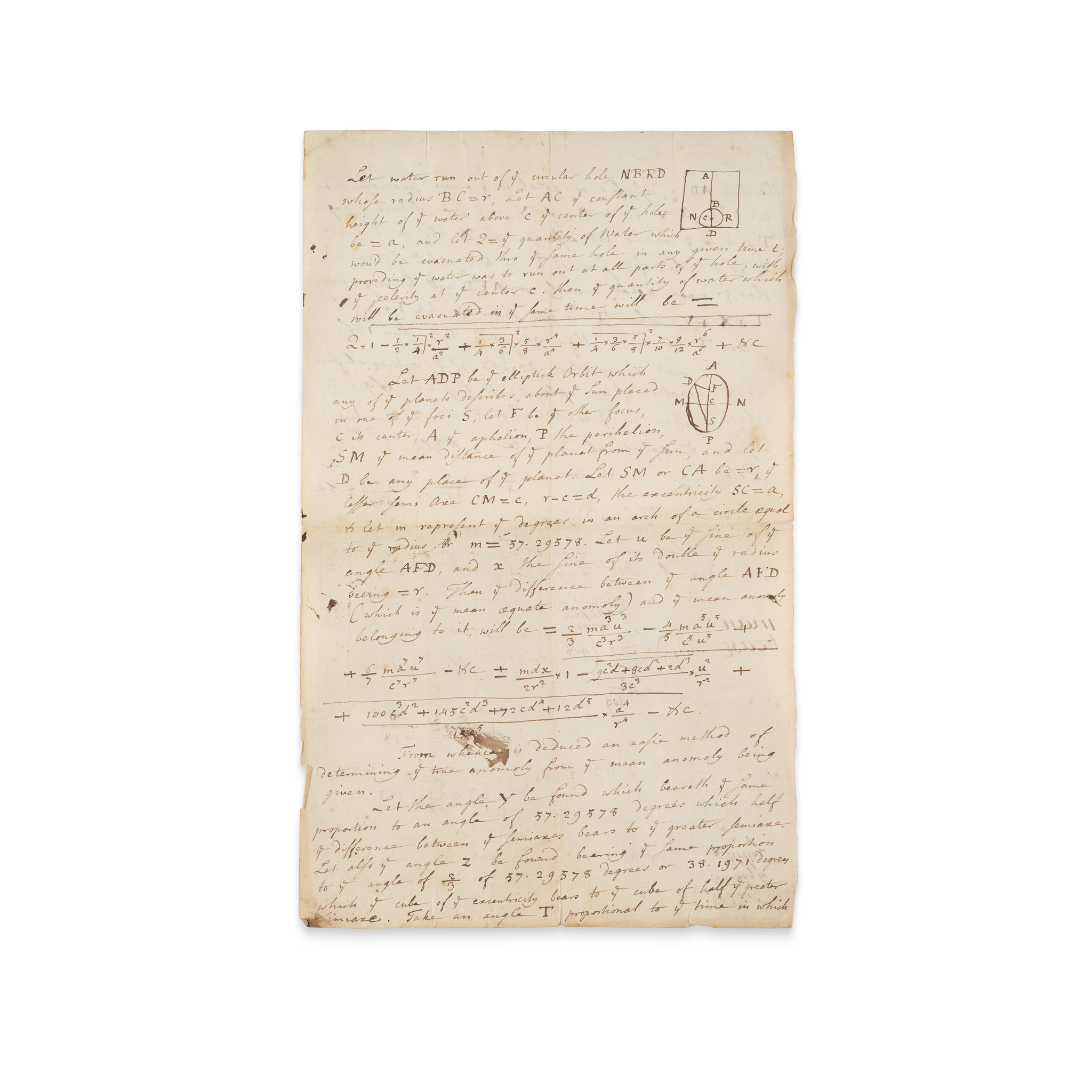
Cuming, Sir Alexander (c.1690-1775)
Autograph letter signed to James Stirling
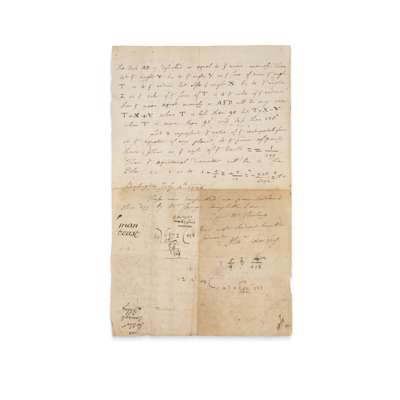
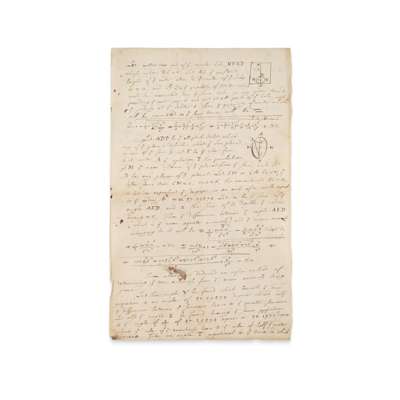


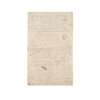
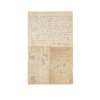
The Library of James Stirling, Mathematician
Auction: 23 October 2025 from 13:00 BST
Description
dated Kensington, 4th July 1728, containing demonstrations of four mathematical proofs ‘transmitted me from Scotland this day by Mr George Campbell’ (i.e. 'Let water run out of the circular hole NBRD whose radius BC=r'; ‘Le ADP be the elliptick orbit which any of the planets describes about the Sun placed in one of the foci S’; ‘Let the angle Y be found which beareth the same proportion to an angle of 57.29578 degrees’; ‘Let z represent the ratio of the centripetal force at the aequator of any planet to the power of gravity there’), with diagrams illustrating the first two proofs, addressed and signed at foot ’Dear Mr Stirling, Your most obedient humble servant, Alexr Cuming', 2 pages, 30.5 x 19cm
Footnote
A noteworthy survival from a curious 18th-century figure best remembered as the self-styled ‘king of the Cherokees', who recommended James Stirling's membership of the Royal Society in 1726. Sir Alexander Cuming ‘was the only son of Sir Alexander Cuming, M.P., the first baronet of Culter, Aberdeen. Cuming went to the Scotch bar, but gave up his profession on receiving a pension. In 1720 he became a Fellow of the Royal Society … He was on friendly terms with De Moivre and Stirling, both of whom acknowledge their indebtedness to him for valuable suggestions. At Aberdeen there is preserved a short letter … from him to Maclaurin, in which he shows his interest in the controversy regarding fluxions. In his introduction to the Methodus Differentialis, Stirling speaks of him as "Spectatissimus Vir'. Being a friend of [George] Campbell he had a share in the dispute between Maclaurin and Campbell' (Tweedie, p. 201). In 1729-30 he undertook an unofficial mission to the Cherokees, ‘which resulted in his crowning as king and return to England accompanied by seven Cherokee chiefs. Cuming then spent several years hoping to be confirmed as overlord of the Cherokees, advocating various banking and settlement plans, and experimenting with alchemy’ (Newberry Library, online).
Published:
Charles Tweedie, James Stirling: a Sketch of his Life and Works along with his Scientific Correspondence, 1922, pp. 93-4.





